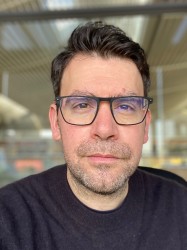
Michalis Barkoulas
Imperial College
UK
(Virtual Speaker)
EMBO Practical Course
C. elegans is a popular experimental model that combines transparency, reproducible anatomy, traceable cell lineage, sequenced genome and facile genetics, allowing to dissect animal development, physiology, and behaviour across scales of genes, cells and tissues. This 7-day course will present experimental practices in C. elegans research, while introducing historic and up-to-date findings in various research topics.
Each day includes lectures, practicals, student poster presentations and interactive discussions with faculty. Various methodologies commonly employed in C. elegans research will be presented in parallel practicals with rotating student groups by relevant experts. These experimental techniques span forward and reverse genetics, genome editing, lineaging, imaging approaches for live and fixed samples using light and electron microscopy, computational image analysis and other useful web resources. Meanwhile, lectures by internationally established researchers will present a variety of C. elegans research topics, spanning studies of the genome and epigenome, through cell cycle and death, to tissue specification, connectivity, and function. A combination of senior and junior speakers will ensure a balanced view of pioneer breakthroughs and recent advances in the topics presented as well as the students’ interactions with researchers of different topics and career levels.
This practical course will be aimed at early career scientists, mostly postdocs and advanced graduate students with an interest in C. elegans. We will target both, participants with little or no prior experience in working with C. elegans who want to use this model organism to advance their research, as well as experienced C. elegans researchers who want to expand their tool set. The course will cover state-of-the-art techniques that are – or will become – essential for a broad range of research topics and we will therefore target participants with diverse research interests.
The course lectures and practical modules develop in three axes of genes, cells, tissues. It will cover the following modules:
Lectures:
Practicals:
After this course you should know:
“The c.elegans from genome editing to imaging is one of the best C.elegans practical courses and I would strongly recommend C.elegans researchers in their early careers to attend this course.” – Somarani Dash, Institute of advanced study in science and technology, Guwahati, Assam, India.
“This course far exceeded my expectations: it was the perfect mixture of theory, hands-onexperiments and networking. An incredible opportunity not only to learn but also to meet peoplefrom all over the world. ” – Antonella Lavatellai, Centre for Research in Agricultural Genomics, Barcelona, Spain.
The course has a recommendation rate of 100% from previous attendees.
Please see EMBL’s COVID-19 safety recommendations for testing and other requirements to attend this on-site course.

Imperial College
UK
(Virtual Speaker)
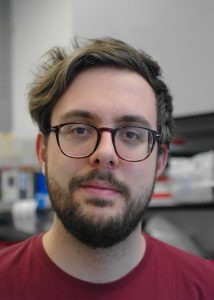
University of Zurich
Switzerland
(Virtual Speaker)
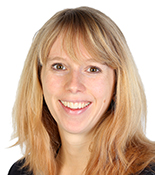
EMBL Heidelberg
Germany
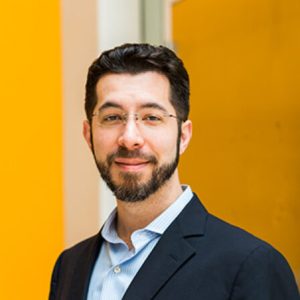
MIT McGovern Institute
USA
(Virtual Speaker)
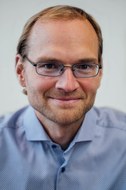
Biotechnology Center
Germany
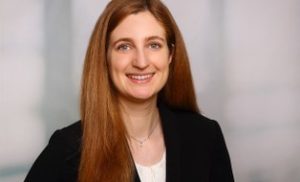
Biotechnology Center
Germany
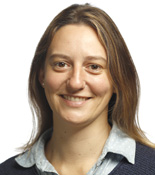
EMBL Heidelberg
Germany
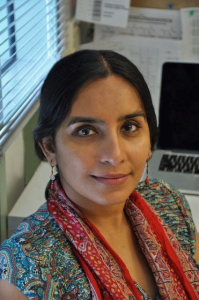
The University of Edinburgh
UK
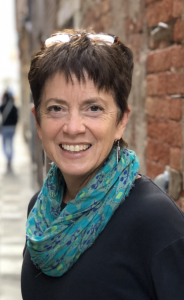
Rutgers University
USA
(Virtual Speaker)
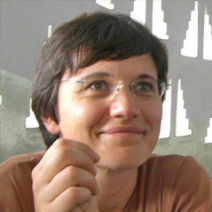
Institut Biologie Ecole Normale Superieure
France
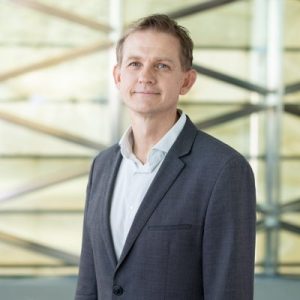
King Abdullah University
Saudi Arabia
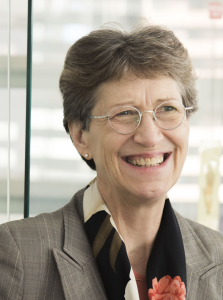
University of Lausanne and ISREC Foundation
Switzerland
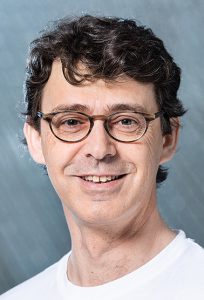
University of Zurich
Switzerland
(Virtual Speaker)
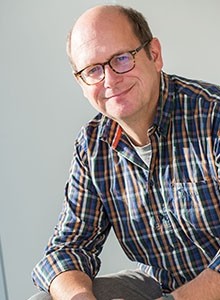
Columbia University
USA
(Virtual Speaker)
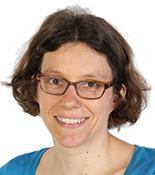
EMBL Heidelberg
Germany

EMBL Heidelberg
Germany
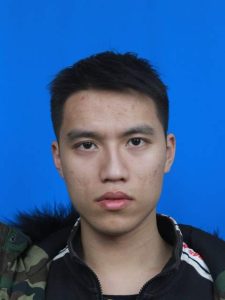
University of Hong Kong
Hong Kong
(Virtual trainer)
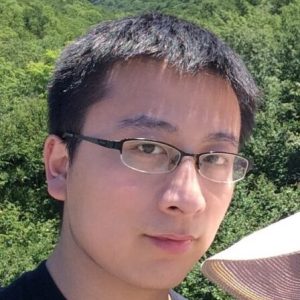
MIT McGovern Institute
USA

EMBL Heidelberg
Germany
Lunenfeld-Tanenbaum Research Institute
Canada
(Virtual trainer)
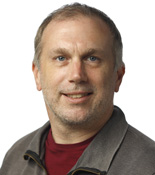
EMBL Heidelberg
Germany
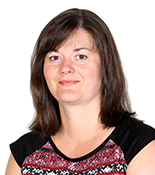
EMBL Heidelberg
Germany
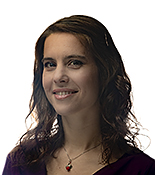
EMBL Heidelberg
Germany
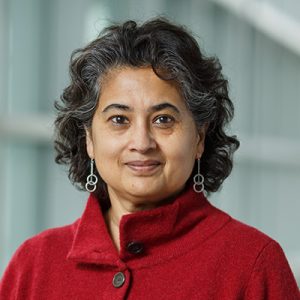
Brandeis University
USA
(Virtual Speaker)

University of California, Los Angeles
USA

Children’s Hospital of Philadelphia
USA
(Virtual trainer)
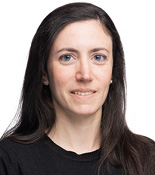
EMBL Heidelberg
Germany

Utrecht University
The Netherlands

Hong Kong Baptist University
Hong Kong
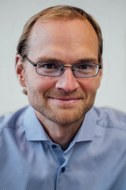
Biotechnology Center
Germany

EMBL Heidelberg
Germany

EMBL Heidelberg
Germany
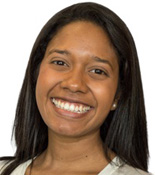
Course and Conference Team Lead
EMBL Heidelberg
Germany

Training Lab Technician
EMBL Heidelberg
Germany
Are you on social media? Post using #EMBOCelegans and don’t forget to tag @EMBLEvents.
| Time (Europe/Berlin) | Speaker | Location |
|---|---|---|
| 14:30 – 16:00 | Onboarding session (access to eCampus learning platform), introduction on Zoom – introduction to the course – materials to be used and expectations from the participants – overview of the tools used during the course | EMBL eCampus |
| Time (Europe/Berlin) | Speaker | Location |
|---|---|---|
| 09:45 – 10:00 | Bus from hotel to EMBL ATC Entrance | ISG Hotel bus stop |
| 10:00 – 10:30 | Health and safety briefing | Courtyard Room A & B |
| 10:30 – 13:30 | Optional Bootcamp A or B Option A: Basic C. elegans methodology: maintenance, propagation, decontamination Trainers: Simone Köhler – EMBL Heidelberg, Germany Georgia Rapti – EMBL Heidelberg, Germany Cristina Piñeiro López – EMBL Heidelberg, Germany Francesca Caroti – EMBL Heidelberg, Germany Option B: Basic principles for image analysis Trainer: Pavak Shah – University of California, Los Angeles, USA | Training Lab Computer Training Lab Courtyard Room |
| 13:45 – 14:00 | Bus from EMBL ATC Entrance to hotel | ATC Entrance |
| 15:00 – 15:30 | ISG Hotel registration | ISG Hotel |
| 15:30 – 15:45 | Welcome Simone Köhler – EMBL Heidelberg, Germany Georgia Rapti – EMBL Heidelberg, Germany | ISG Hotel |
| 15:45 – 16:15 | Flash talks (1 min per participant) | ISG Hotel |
| 16:15 – 17:15 | Challenges & expectations for the course (all participants) | ISG Hotel |
| 17:15 – 17:30 | Coffee break | ISG Hotel |
| 17:30 – 17:45 | Course overview Simone Köhler – EMBL Heidelberg, Germany Georgia Rapti – EMBL Heidelberg, Germany | ISG Hotel |
| 17:45 – 18:45 | Introduction to useful web resources and databases for C.elegans research Introduction on responsible conduct of research Simone Köhler – EMBL Heidelberg, Germany Georgia Rapti – EMBL Heidelberg, Germany | ISG Hotel |
| 18:45 – 19:00 | Break | ISG Hotel |
| 19:00 | Dinner | ISG Hotel |
| Time (Europe/Berlin) | Speaker | Location |
|---|---|---|
| 08:40 – 08:55 | Bus to EMBL ATC Entrance | ISG Hotel bus stop |
| 08:55 – 09:00 | Overview of the day | Courtyard Room A & B |
| 09:00 – 10:45 | Practical: Methods of genome manipulation Station 1: Screening RNAi / mutagenesis Trainer: Francesca Caroti – EMBL Heidelberg, Germany Georgia Rapti – EMBL Heidelberg, Germany Station 2: Transgenesis (sample preparation, injection) Trainer: Simone Köhler – EMBL Heidelberg, Germany Cristina Piñeiro López – EMBL Heidelberg, Germany Station 3: Design for CRISPRs, MoSCIs, arrays Trainer: Christian Frœkjær-Jensen – King Abdullah University, Saudi Arabia Alex Paix – EMBL Heidelberg, Germany Station 4: In silico Lineaging / Transcriptomics – design, analysis Trainer: Priya Sivaramakrishnan – University of Pennsylvania, USA helper on site | Station 1: Training Lab B Station 2: Simone’s Lab Station 3: Courtyard Room Station 4: Computer Training Lab |
| 10:45 – 11:30 | Coffee break | Courtyard Room A & B |
| 11:30 – 12:00 | Lecture: Cell fate and the cell cycle of the early embryo Pavak Shah – University of California, Los Angeles, USA | Courtyard Room A & B |
| 12:00 – 12:15 | Q&A after the lecture | Courtyard Room A & B |
| 12:15 – 12:45 | Lecture: Expansion microscopy of C. elegans Ed Boyden – MIT McGovern Institute, USA (Virtual Speaker) | |
| 12:45 – 13:00 | Q&A after the lecture | |
| 13:00 – 14:00 | Lunch break with guided discussion on “Choosing a postdoc”, “Getting a research PI position” | EMBL Canteen |
| 14:00 – 17:00 | Practical: Imaging cells and molecules Station 1: Live imaging and Lineaging Trainer: Francesca Caroti – EMBL Heidelberg, Germany Georgia Rapti – EMBL Heidelberg, Germany Pavak Shah – University of California, Los Angeles, USA Station 2: Expansion Microscopy Trainer: Yangning Lu – MIT McGovern Institute, USA Simone Köhler – EMBL Heidelberg, Germany Cristina Piñeiro López – EMBL Heidelberg, Germany Station 3: Basics in Optogenetics Trainer: Inka Busack – Biotechnology Center, Germany helper Station 4: Electron Microscopy Trainer: Mandy Boermel – EMBL Heidelberg, Germany Rachel Mellwig – EMBL Heidelberg, Germany Paolo Ronchi – EMBL Heidelberg, Germany | Station 1: Microscopy room 116/ALMF Station 2: Training Lab B Station 3: ALMF Station 4: EM-facility |
| 17:00 – 17:30 | Coffee break | Courtyard Room A & B |
| 17:30 – 18:00 | Lecture: Cytoskeletal assembly and dynamics in neurodevelopment Dhanya Cheerambathur The University of Edinburgh, UK | Courtyard Room A & B |
| 18:00 – 18:15 | Q&A after the lecture | Courtyard Room A & B |
| 18:15 – 18:30 | Coffee break | Courtyard Room A & B |
| 18:30 – 19:30 | Poster session 1 (odd numbers) | Helix A |
| 19:30 – 21:00 | Dinner with poster networking (All posters) | Helix A |
| 21:00 | Bus to ISG Hotel | ATC Entrance |
| Time (Europe/Berlin) | Speaker | Location |
|---|---|---|
| 08:40 – 08:55 | Bus to EMBL ATC Entrance | ISG Hotel bus stop |
| 08:55 – 09:00 | Overview of the day | Courtyard Room A & B |
| 09:00 – 09:30 | Lecture: Cell division and differentiation Sander van den Heuvel – Utrecht University, The Netherland | Courtyard Room A & B |
| 09:30 – 09:45 | Q&A after the lecture | Courtyard Room A & B |
| 09:45 – 10:15 | Lecture: Genotype-to-phenotype relationship Michalis Barkoulas – Imperial College, UK (Virtual Speaker) | Courtyard Room A & B |
| 10:15 – 10:30 | Q&A after the lecture | Courtyard Room A & B |
| 10:30 – 10:45 | Coffee break | Courtyard Room A & B |
| 10:45 – 11:15 | Lecture: Molecular Promotion of Healthy Aging Monica Driscoll – Rutgers University, USA | Courtyard Room A & B |
| 11:15 – 11:30 | Q&A after the lecture | Courtyard Room A & B |
| 10:30 – 11:30 | Poster session 2 (even numbers) | Helix A |
| 11:30 – 12:30 | Lunch break with guided discussion on “Science policy & communication”, “Choosing a postdoc” | EMBL Canteen |
| 12:30 – 19:00 | Practical: Imaging cells and molecules Station 1: Live imaging and Lineaging Trainer: Francesca Caroti – EMBL Heidelberg, Germany Georgia Rapti – EMBL Heidelberg, Germany Pavak Shah – University of California, Los Angeles, USA Station 2: Expansion Microscopy Trainer: Yangning Lu – MIT McGovern Institute, USA Simone Köhler – EMBL Heidelberg, Germany Cristina Piñeiro López – EMBL Heidelberg, Germany Station 3: Basics in Optogenetics Trainer: Inka Busack – Biotechnology Center, Germany helper Station 4: Electron Microscopy Trainer: Mandy Boermel – EMBL Heidelberg, Germany Rachel Mellwig – EMBL Heidelberg, Germany | Station 1: Microscopy room 116/ALMF Station 2: Training Lab B Station 3: ALMF Station 4: EM-facility |
| 19:00 – 20:30 | Dinner with poster networking (All posters) | Helix A |
| 20:30 | Bus to ISG Hotel | ATC Entrance |
| Time (Europe/Berlin) | Speaker | Location |
|---|---|---|
| 08:40 – 08:55 | Bus to EMBL ATC Entrance | ISG Hotel bus stop |
| 08:55 – 09:00 | Overview of the day | Courtyard Room A & B |
| 09:00 – 12:00 | Practical: Imaging cells and molecules Station 1: Live imaging and Lineaging Trainer: Francesca Caroti – EMBL Heidelberg, Germany Georgia Rapti – EMBL Heidelberg, Germany Pavak Shah – University of California, Los Angeles, USA Station 2: Expansion Microscopy Trainer: Yangning Lu – MIT McGovern Institute, USA Simone Köhler – EMBL Heidelberg, Germany Cristina Piñeiro López – EMBL Heidelberg, Germany Station 3: Basics in Optogenetics Trainer: Inka Busack – Biotechnology Center, Germany helper Station 4: Electron Microscopy Trainer: Mandy Boermel – EMBL Heidelberg, Germany Rachel Mellwig – EMBL Heidelberg, Germany | Station 1: Microscopy room 116/ALMF Station 2: Training Lab B Station 3: ALMF Station 4: EM-facility |
| 12:00 – 13:00 | Lunch break with guided discussion on “Starting a junior PI position”, “Positions in PUI institutions” | EMBL Canteen |
| 13:00 – 16:00 | Practical: Advanced image analysis tools (Part 1) Station 1: Deconvolution Trainer: Marko Lampe – EMBL Heidelberg, Germany Station 3: Lineage tracing & analysis Trainer: Pavak Shah – University of California, Los Angeles, USA Station 4: Image analysis for optogenetics Trainer: Inka Busack – Biotechnology Center, Germany Station 5: Analysis of EM imaging Trainer: Ben Mulcahy – Lunenfeld-Tanenbaum Research Institute, Canada (Virtual speaker) | |
| 16:00 – 16:30 | Coffee break | Courtyard Room A & B |
| 16:30 – 17:00 | Lecture: Signal transduction during C. elegans development Alex Hajnal – University of Zurich, Switzerland (Virtual speaker) Simon Berger – University of Zurich, Switzerland (Virtual speaker) | Courtyard Room A & B |
| 17:00 – 17:15 | Q&A after the lecture | Courtyard Room A & B |
| 17:15 – 17:45 | Lecture: Neurogenetics of sensory behaviors Piali Sengupta – Brandeis University, USA (Virtual Speaker) | Courtyard Room A & B |
| 17:45 – 18:00 | Q&A after the lecture | Courtyard Room A & B |
| 18:00 – 18:30 | Coffee break | Courtyard Room A & B |
| 18:30 – 19:00 | Lecture: Self-organization in meiosis Simone Köhler – EMBL Heidelberg, Germany | Courtyard Room A & B |
| 19:00 – 19:15 | Q&A after the lecture | Courtyard Room A & B |
| 19:15 – 20:15 | Dinner | EMBL Canteen |
| 20:15 | Bus to ISG Hotel | ATC Entrance |
| Time (Europe/Berlin) | Speaker | Location |
|---|---|---|
| 08:40 – 08:55 | Bus to EMBL ATC Entrance | ISG Hotel bus stop |
| 08:55 – 09:00 | Overview of the day | Courtyard Room A & B |
| 09:00 – 12:00 | Practical: Advanced image analysis tools (Part 2) Station 1: Deconvolution Trainer: Marko Lampe – EMBL Heidelberg, Germany Station 2: Automated membrane tracing Trainer: Zhongying Zhao Station 3: Lineage tracing & analysis Trainer: Pavak Shah – University of California, Los Angeles, USA Station 4: Image analysis for optogenetics Trainer: Inka Busack – Biotechnology Center, Germany | Station 1: Computer Training Lab Station 2: ATC room A28 Station 3: Courtyard room Station 4: ATC room B11 |
| 12:00 – 13:00 | Lunch | EMBL Canteen |
| 13:00 – 13:30 | Lecture: Generation of neuronal diversity Oliver Hobert – Columbia University, USA (Virtual Speaker) | Courtyard Room A & B |
| 13:30 – 13:45 | Q&A after the lecture | Courtyard Room A & B |
| 13:45 – 14:15 | Coffee break | Courtyard Room A & B |
| 14:15 – 16:45 | Practical: Advanced image analysis tools (Part 3) Station 1: Deconvolution Trainer: Marko Lampe – EMBL Heidelberg, Germany Station 2: Automated membrane tracing Trainer: Zhongying Zhao – Hong Kong Baptist University, Hong Kong (Virtual speaker) Station 3: Lineage tracing & analysis Trainer: Pavak Shah – University of California, Los Angeles, USA Station 4: Image analysis for optogenetics Trainer: Inka Busack – Biotechnology Center, Germany Station 5: Analysis of EM imaging Trainer: Ben Mulcahy – Lunenfeld-Tanenbaum Research Institute, Canada (Virtual speaker) | Station 1: Computer Training Lab Station 2: ATC room A28 Station 3: Courtyard room Station 4: ATC room B11 Station 5: Flex lab |
| 16:45 – 17:15 | Coffee break | Courtyard Room A & B |
| 17:15 – 17:30 | Bus to downtown | ATC Entrance |
| 17:30 – 19:00 | Free evening | |
| 19:00 | Dinner downtown |
| Time (Europe/Berlin) | Speaker | Location |
|---|---|---|
| 09:40 – 09:55 | Bus to EMBL ATC Entrance | ISG Hotel bus stop |
| 09:55 – 10:00 | Overview of the day | Courtyard Room A & B |
| 10:00 – 10:30 | Lecture: Evolution of C. elegans Marie-Anne Félix – Institut Biologie Ecole Normale Superieure, France | Courtyard Room A & B |
| 10:30 – 10:45 | Q&A after the lecture | Courtyard Room A & B |
| 10:45 – 11:15 | Coffee break | Courtyard Room A & B |
| 11:15 – 11:45 | Lecture: Glia & neuron interactions in nervous system assembly Georgia Rapti – EMBL Heidelberg, Germany | Courtyard Room A & B |
| 11:45 – 12:00 | Q&A after the lecture | Courtyard Room A & B |
| 12:00 – 12:30 | Feedback session and closing remarks | Courtyard Room A & B |
| 12:30 | Bus from EMBL to Heidelberg city center/train station or Walk to ISG | ATC Entrance |
The course is limited to 16 participants. For selection purposes, please note that your application will not be considered without a letter of motivation.
Registration fees include admission, course materials, meals and coffee breaks.
This EMBO course includes accommodation and transportation to and from the ISG Hotel to the venue.
| Academia | €500 |
| PhD Student | €500 |
| Industry | €1000 |
A letter to support your visa application will be issued, on request, once payment of the registration fee is confirmed. We recommend that you book your visa appointment as soon as possible, to avoid any delay with your visa application.
The registration fee should be paid only after acceptance to the course. The results will be announced approximately 2-3 weeks after the application deadline.
After you have logged in and successfully registered, you will receive an email asking you to submit your motivation letter. Click on the link provided and enter your motivation letter in the text box provided. Alternatively you can submit your motivation letter by clicking on the link on the confirmation page directly after registering.
Instructions
Please note:
For detailed instructions, please watch our video on how to submit a course motivation letter.
For further information about registration and motivation letter submission please refer to the FAQ page.
Limited financial assistance is provided by the EMBL Advanced Training Centre Corporate Partnership Programme and EMBO in the form of registration fee waivers, travel grants and childcare grants.
Your place in the meeting is only confirmed by paying the registration fee, which is mandatory even when receiving a fee waiver.
The fee waiver will cover the registration sum that you have paid to attend the course.
The travel grant will cover the cost of travel (airfare, train, bus, taxi, accommodation, visa, and/or registration fees*) and is provided up to specified caps which are normally as follows:
– up to €400 for participants travelling to an EMBL Course within Europe.
– up to €1000 for participants travelling to an EMBL Course from outside Europe.
– up to €500 for any participant travelling to an EMBO Practical Course.
– up to €1000 for any participant working in Chile, India, Singapore or Taiwan travelling to an EMBO Practical Course.
– up to €700 for any participant working in Croatia, Czech Republic, Estonia, Greece, Hungary, Italy, Lithuania, Luxembourg, Poland, Slovenia, and Turkey travelling to an EMBO Practical Course.
*Registration fees are only covered for EMBO Practical Courses
The organisers may reduce the grant cap to accommodate more participants. Recipients will be notified of their travel cap amount when they are informed of the outcome of their application. Original receipts must be provided with your signature for all costs incurred within two months of completion of travel. Scanned copies cannot be accepted.
There is the possibility to apply for a childcare grant to offset child care costs incurred by participants, speakers, trainers and organisers when attending a course. Eligible costs include (but are not limited to) fees for a babysitter or child-care facility and travel costs for a caregiver. Please note that priority will be given to early-stage researchers. There is a limited amount of funding available for the childcare grants and funds will be distributed amongst eligible applicants.
Applies to selected courses only. Availability will be indicated during the motivation letter submission process.
This grant covers costs related to your attendance at the course (registration, travel and accommodation costs). The grant is restricted to PhD students and postdocs who conduct basic biomedical research.
Whether you are eligible to apply for a travel grant, depends on when you received your university entrance qualification (e.g. Abitur, A-Levels, High School Diploma, Final State Examination):
– for PhD and MD students, as well as graduates, the university entrance qualification must not have been obtained more than 11 years ago at the time of the envisaged course
– for postdocs, the university entrance qualification must not have been obtained more than 13 years ago at the time of the envisaged course
You may apply for financial assistance when submitting your motivation letter for courses. In your application, you will be asked to answer questions regarding why your lab cannot fund your attendance and how your attendance will make a difference to your career. Application for financial support will not affect the outcome of your registration application.
For the Boehringer Ingelheim Fonds Travel Grant, there is a pre-application question during the motivation letter submission process, and if selected you will be requested to complete a standard form and documentation consisting of your travel expense estimation.
The scientific organisers will select the recipients of registration fee waivers and travel grants during the motivation letter or abstract selection process. Results will be announced approximately 6 – 8 weeks before the event start date, however for some events this may be delayed. Selection results do not impact your admission to the meeting. Selection for registration fee waivers and travel grants is based on scientific merit, your current work or study location, the reasons for needing financial support, and the impact this event will have on your career.
Childcare grants will be allocated in the same timeframe (6-8 weeks before the event start date). Please note that priority will be given to early-stage researchers.
Costs will be reimbursed after the meeting only once a reimbursement form and original receipts (from travel costs) have been received.
See our list of external funding opportunities and for further information about financial assistance please refer to the FAQ page.
For travel information, please see here.
If you are travelling to the conference within Germany then you are eligible for the Deutsche Bahn ‘Event Ticket’ (called the ‘Veranstaltungsticket’ in German). This will result in a lower ticket price if your travel distance to Heidelberg is more than 100 km. You need to provide proof of your event attendance when purchasing the ticket.
For more information in English see here or in German see here.
You can book your ticket here.
Accommodation in single rooms, including breakfast, is included in the registration fee. Accommodation has been booked for you at the ISG Hotel for the default dates of 9 to 15 (7 nights). This should be paid by you directly to the ISG during your stay. Any additional nights need to be booked and paid for by you. We recommend that all course participants stay at the ISG Hotel which is the dedicated hotel for the course.
Shuttle buses will go from the ISG Hotel to EMBL and back, mornings and evenings. A bus schedule and location of the bus stops will be made available prior to the meeting.
Address: EMBL Heidelberg, Meyerhofstraße 1, 69117 Heidelberg, Germany
For more information about accommodation and travel, please refer to the FAQ page.
All meals and coffee breaks are included in the registration fee. Our catering staff will prepare a wide variety of vegetarian meals, meat and fish dishes, soups, pasta, fresh fruit and vegetables, as well as a variety of desserts.
Please wear your badge at all times when serving yourself.
No food or drinks are allowed in the laboratories.
In most places the electricity is 220 volts AC (50 cycles). An adaptor and a plug that fits the German socket may be needed for your appliances/laptop (i.e. American, Japanese, etc.). A USB charging station for electronic devices is available at the registration desk.
If you are interested in purchasing EMBL merchandise (products presented in the glass display in the registration area), please email the EMBL shop to place an order or get in contact with your Course Organiser.
Kindly note the EMBL shop is only open upon request and all purchases must be made in cash (Euros only).
Please read EMBL’s COVID-19 safety policy for on-site events.
Do not smoke in any EMBL building.
Eating and drinking is prohibited in all laboratories.
Do not enter any restricted areas or the laboratories unless instructed to do so.
If first aid is required …
In case of fire …
Beyond first aid…
Please remember to bring your own medication, if needed, to the conference. Note that the next pharmacy is a 4-minute drive from the EMBL, but for many medications you will be required to see a doctor to get a prescription.
Ensure in advance that your medical insurance will cover you during your visit in the event that you do need to see a doctor while in Heidelberg. In any case, the EMBL Course and Conference Office will assist you to get to the pharmacy and a doctor of your choice if necessary.
Wi-Fi is available on campus. Log in using the EMBL-Events network and the event specific password, which will be provided on site. The eduroam network (secure, worldwide roaming access service developed for the international research and education community) is also available.
‘’Lost and Found’’ items are kept at the registration desk until the end of the conference.
There are lockers available on-site to store your luggage, which require a 2 EURO coin to operate. There is another luggage room on level E0, which is free to use but remains unlocked during the conference.
There is a nursing room available in the ATC Rooftop Lounge on level A29.
During the conference, an EMBL Photographer may be taking photos. If you would not like to appear in these, please inform the photographer or a member of the Course and Conference Office.
We can help to print your boarding pass/train ticket. Please send it to events@embl.de and collect your print-outs at the registration desk.
There is a room for prayer, meditation, and yoga located on level E0 behind the Auditorium. Please be respectful of others using the room.
A variety of activities in Heidelberg can be found on the website of Heidelberg Marketing.
During the event, we provide conference shuttle buses to and from EMBL. In addition, there is the public bus 39A that serves the EMBL campus and taxis can be easily booked at any time. Information on the shuttle buses can be found on the individual event website and more detailed information on travelling to EMBL can be found on our Travel Information page.
Address: EMBL Heidelberg, Meyerhofstraße 1, 69117 Heidelberg, Germany
Please find additional information including FAQs, terms and conditions, COVID-19 safety policy and travelling to EMBL on our Information for Participants page.
Below you will find the software and technical requirements for this course.
The EMBL eCampus learning platform will be used to collaborate, communicate and network with all of the course participants. All participants will receive information on how to join shortly before the course. We recommend using Chrome, Safari or Mozilla Firefox browsers for eCampus.
Please find additional information including FAQs, terms and conditions, COVID-19 safety policy and travelling to EMBL on our Information for Participants page.
COVID-19 information for on-site events at EMBL Heidelberg can be found in our COVID-19 FAQs.
Event partner
Event sponsors
Event supporters
Sponsorship opportunities
We offer a variety of event sponsoring possibilities, with the flexibility to select a set sponsorship package or combine individual sponsorship options to suit your event budget. Discounts are available for companies sponsoring multiple events at EMBL Heidelberg. View other events, or contact sponsorship@embl.de for further information.
If you are interested in becoming a media partner of this event, please visit our media partnerships webpage.
EMBL wishes to warn sponsors of EMBL conferences and courses of fraudulent schemes purporting to offer sponsorship opportunities on behalf of EMBL or affiliated with EMBL officials. One current scam campaign of which we are aware is conducted using the name ‘Judy Eastman’ (judy@gopcontact.a2hosted.com) and entails approaches to sponsors offering sponsorship opportunities on EMBL’s behalf. Please be kindly advised that all relevant communication regarding sponsorship of EMBL conferences, symposia and courses is handled by EMBL directly and is sent from an official EMBL account. EMBL does not work with any external providers on sponsorship acquisition.
Please also note that:
Suspicious communications purportedly from, for or on behalf of EMBL should be reported to EMBL at the following email address sponsorship@embl.de.
Want to let others know you’re attending this event? Take a look at our shareable media and feel free to use them in your social media channels or presentations.

Date: 9 - 15 Jun 2024
Location: EMBL Heidelberg
Venue: EMBL Advanced Training Centre
Deadline(s):
Application: Closed
Organisers:
Contact: Maria Bacadare